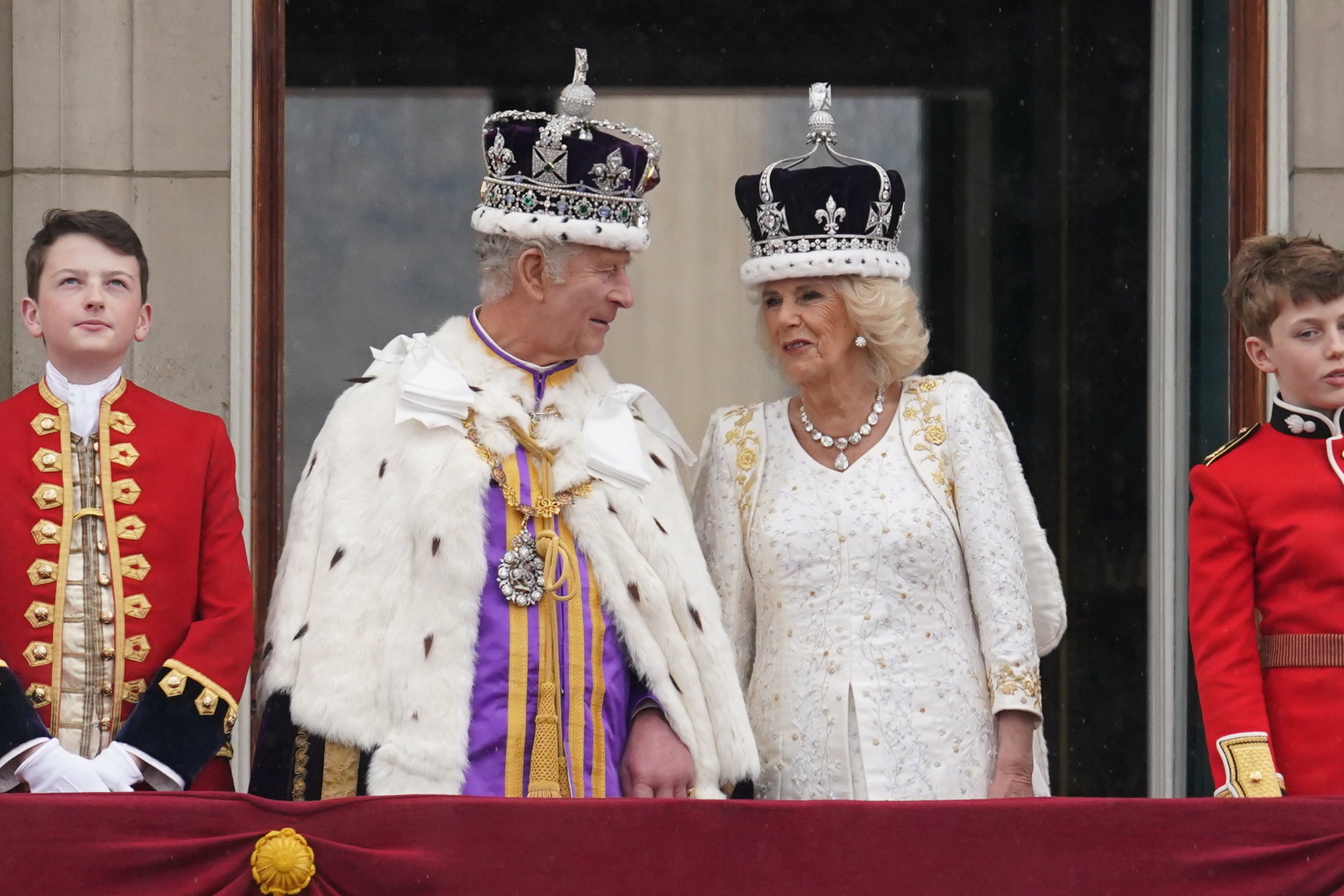Diverse, inclusive, rain-sodden: The coronation was Britain at its best
Editorial: You do not have to be a believer in the divine right of kings to recognise that such things unite people and connect them with their history

A page of the latest chapter of the great history of our islands was turned with the coronation of Charles III. Despite the rain, we celebrated the enduring, cheerful, protestable institution of that great British compromise, a constitutional monarchy.
It is an institution that has modernised to survive, and has managed to retain the consent of the people on whom its future depends. More than mere consent: the monarchy currently enjoys the happy and positive support of the majority of the people. There have been good kings and queens over the centuries, and bad ones; today we have a thoughtful king, a true Renaissance man – one who has prepared all his life, with a seriousness of purpose leavened by humour, for the role.
It is a significant, symbolic role that was affirmed in a service that blended ancient and modern at Westminster Abbey. History is important. It matters that a visitor from the 10th century would have understood the ceremony on Saturday. He or she might have been surprised by the gospel choir singing unaccompanied in a circle near the altar, and they would have wondered what a protestant religion was, but the essence of the event would have made sense to them.
Meanwhile, the congregation provided a visual reminder of the continuity of the British state, in the form of past prime ministers from John Major to Liz Truss, while also finding space for Nick Cave, the Australian singer-songwriter, who defended his attendance to his republican fans on the grounds that it was likely to be not just “the most important historical event in the UK of our age ... but the strangest, the weirdest”.
Indeed, the monarchy is strange, but it works. It is something of a myth that The Independent was ever opposed to the institution. That belief arose from the determination of a new title in the 1980s to report the news differently, and to treat its readers as people capable of making up their own minds about current affairs.
Andreas Whittam Smith, our founding editor, admitted to a “tinge of republicanism”, but wanted to report the doings of the royal family on their merits while avoiding “fawning” and trivia. Thus we thought the separation of the Prince of Wales and his wife worthy of reporting and analysis, but famously chose to report the birth of a daughter to Prince Andrew with the brevity we thought it deserved.
Our view has always been that a constitutional monarchy is better than any plausible alternative, provided that it continues to command the support of the majority of the people, and provided that the expense of the extended royal family is kept within limits. The two provisos reinforce each other. As long as the flummery and excess of the minor royals is minimised, most people enjoy and respect the pomp and pageantry of state events.
You do not have to be a believer in the divine right of kings to recognise that such things unite people and connect them with their history. They allow us to tell ourselves stories about who we are. One of the stories of this coronation was the one with the fairytale ending for Queen Camilla – someone who, through patience and good humour, has finally won the affection of the British public. Another was a story of inclusion, of a society welcoming new people and new influences, symbolised by the rites of the established church being attended by representatives of other faiths, and by a passage from the Bible being read by our Hindu prime minister.
There is something absurd about the hereditary principle, the dressing up, the Chinooks and the street parties in the rain. But these are absurdities that most of the British people are extremely comfortable with, and are able to enjoy in their own way, either by revelling in them, complaining about them, or tolerating them with a sense of ironic detachment.
Long may they continue. Happy and glorious, indeed.



Join our commenting forum
Join thought-provoking conversations, follow other Independent readers and see their replies
71Comments